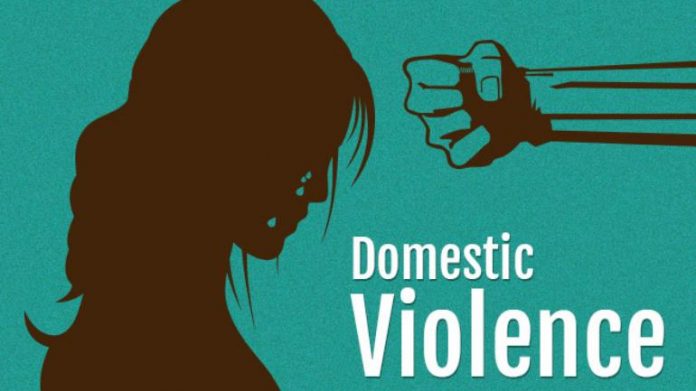This article is written by Kritika Garg, from National Law University, Odisha. This is an exhaustive article on the topic of domestic violence and the impact of COVID-19 on the cases of domestic violence worldwide.
Table of Contents
Introduction
Domestic violence, as defined by the World Health Organisation, is the intentional use of physical force or power, or threatening to use physical force or power against oneself, against another person, or against a group resulting or likely to result in injury, death, psychological harm, maldevelopment or deprivation.
It is a kind of violence that is characterized by a pattern of abusive behavior by one or both partners in a relationship. It can be in the form of physical abuse, sexual abuse, emotional abuse, controlling nature, or economical deprivation.
Domestic violence is mainly carried out against women by their intimate partners in the form of physical, sexual and psychological abuse. As per the reports of the United Nations, around 70% of women around the globe have experienced some sort of physical/sexual violence from their intimate partner at some point in their lives. Such women show a higher rate of depression, abortion and HIV as compared to women who are not subjected to domestic violence.
Further, reports from the countries of the Middle East and North Africa show that males who witnessed some sort of abuse during their childhood or witnessed their fathers abusing their mothers are more abusive to their intimate partners during a relationship. One such example is that of Lebanon where the number of males, who witnessed their father abusing their mother, are perpetrators of domestic violence three times more than those who did not witness the same. The cases of domestic violence and homicide are so high that according to an estimation, around 137 women were killed by their own family members every day around the globe in 2017.
Countries are passing strict laws in order to prevent crime. However, even countries with strict laws against crime face the issue at a high level. For example, the US has some stringent laws against domestic violence; however, as per the reports around 20 people are victimized by domestic violence every minute.
Here it is important to note that men are also subjected to domestic violence by their intimate partners. In many cases, men are the victims of domestic violence inflicted upon them by their wives, however, in a male-dominated society, men found it shameful to report it. Further, the legal system considers only women as victims of domestic violence and provides no protection to men. Lack of gender neutrality in the legal system deters male victims from reporting the atrocities that they are subjected to by their intimate partners. Therefore, domestic violence against men goes highly unreported.
Causes of domestic violence
The reason for the existence of domestic violence is multifold. Biological factors, personal factors, relationship quality are all contributory factors to domestic violence.
Marital conflict or discord in a relationship contributes the most to intimate partner violence or domestic violence. Along with it is the economical condition which further deteriorates the situation. There is a strong connection found out between domestic violence and low level of income. People with a lower level of income or lower level of education engage more in domestic violence as per various studies. The studies have also revealed that there exists an inverse relationship between a woman’s educational level and domestic violence. Women who are independent and have access to resources are protected against domestic violence. However, several other studies have pointed out how the increased status of women has led to increased domestic violence. As per the study conducted by South India, it was observed that vocational training, education and employment to women will impart them with resources that will reduce the risk of adverse reproductive health outcomes. But, such a strategy would most probably conflict with the already established social norms and expectations which would further lead to an increased rate of domestic violence. India is an example of the same where around 75% of working women are abused because of their employment status.
Further, gender inequality is another factor that contributes to domestic violence. Violence is considered as a mechanism for enforcing the deeply entrenched gender power inequalities. There are instances of men who abuse their female partner, sexually, physically, and psychologically as they feel that they are entitled to do so. Further, the unemployment of men in a society where they are taught to be the financial provider of the house affects their male-ego and they resort to violence to show their masculinity.
 Laws for domestic violence around the world
Laws for domestic violence around the world
As per the data provided by the UN, in 2003 around 45 countries had laws against domestic violence across the globe. With the upsurge in the cases of domestic violence worldwide, the number of countries changed to 60 by 2006. Further, in recent years, many more nations have been added to the list. As per the report of the UN, the number of countries with laws against domestic violence was 125 in 2011. Countries like Kyrgyzstan passed a new law which made it easy for the victim as well as the witness to report the crime and follow up with the Police. Further, countries like Jordan and Lebanon took a major step by repealing the “rape marriages” laws. Another nation Tunisia also took this significant step wherein it repealed the law which pardons a rapist if he marries the victim.
While there are countries that are recognizing the equal rights of women and providing them protection against the injustice being done to them, there are also countries which provide zero protection to women against domestic violence. As per the reports of the World Bank, there are around one billion women who live in countries that provide them with almost no protection against domestic violence. Around 600 million women are residents of countries where there exists no law against domestic violence. Such countries include Sudan, Yemen, Chad, Iraq, Iran, Syria, Myanmar, Ivory Coast, Burkina Faso, Qatar, Estonia, Libya, Haiti, and many more.
A report of the UN suggested that in 2011, there were around 127 countries that did not have any laws dealing with marital rape. Further, even countries with laws against domestic violence face problems because of poor implementation. For instance, America and Europe are considered to be the countries with the strongest laws against domestic violence. However, these countries are still facing the issue of domestic violence at a very high level.
Therefore, it is essential to ensure that the laws are implemented properly and they actually prevent the act from happening rather than just punishing the perpetrator after the commission of the act.
Current situation during COVID lockdown
Restriction on movement for stopping the spread of the pandemic has severed the issue of domestic violence. Domestic violence has seen a horrifying global surge amid the lockdown measures that have been adopted by several countries to fight the coronavirus pandemic. The pandemic has left the public restricted to their house which has led to an increase in domestic violence making it more frequent and dangerous.
The reasons for the upsurge are multifold. The Lockdown has led to an increase in the stress level and associated risk factors such as unemployment, reduced income, limited resources, and limited social support. Recently, the Council of Europe, which has 47 member states expressed concerns regarding the surge in the domestic violence cases during the lockdown and how the women and the children are at the greatest risk of being abused during the period. Europe has witnessed an increase of 60% in emergency calls by women subjected to domestic violence in the month of April.
Further, the French government revealed that the cases of domestic violence have shot up due to the lockdown as there has been an increase in the reporting of such cases by 36% in Paris and by 32% in the rest of the country. The government has, therefore, announced an additional fund of EUR 1 million to the organizations fighting against domestic violence so that they can help the victims. The government has also announced that it would pay for hotel rooms for the victims and provide counselling services and has encouraged the victims to come out and raise their voice against the injustice done to them.
In Italy, the government has taken steps to fight against domestic violence that has witnessed a sudden surge due to the lockdown. It has launched an app that allows the victims to report the case and seek help without requiring to make a phone call. Further, recommendations have been made to allocate EUR 4 million for arranging shelters for the victims of domestic violence.
The UK has also witnessed an increase in domestic violence cases. The National Domestic Abuse helpline has witnessed a rise in the calls and online requests for help by 25%. The BBC report suggests that the helpline website has been visited 150% more as compared to that of February.
The Scottish government has granted over £350 million to the Scottish Women’s Aid and Rape Crisis for supporting the victims and enabling them to report the crime committed against them during the period of lockdown via online platforms and phone calls. As per the reports of the UN, Countries like Lebanon, Malaysia, China, and Australia are not spared from the spread of domestic violence during the lockdown. These countries have received double-triple helpline calls as compared to last year.
Further, as per the estimation of the UN agency for Sexual and Reproductive health, cases of domestic violence will shoot up by 31 million cases if the lockdown continues for the next six months.
India’s condition
India is no exception and is facing the same situation as the rest of the world. The cases of domestic violence have shot up in India during the nationwide lockdown. As per the data provided by the National Commission of Women of India, there was almost an increase of 100% in the domestic violence cases in mid-April in the country. The commission launched a Whatsapp number to assist the victims of domestic violence during the lockdown. Initially, there was a surge in the emergency helpline calls received by the Police, organizations, and NGOs which then witnessed a downfall. The Chairperson of NCW, Rekha Sharma told that the presence of the perpetrators and the inability of the victim to move away from them have forced the victims to stay quiet and have made them hesitant in reporting the crime. Therefore, the exact data regarding the crime might not be available and what is available might be just the tip of the iceberg.
Further, a PIL was filed in the Delhi High Court where the petitioner asked if the provisions of the Disaster Management Act could be used to extend help to the victims of domestic violence which have surged due to the lockdown. The High Court in view of the PIL has asked the National Commission For Women, the Delhi Commission for Women, the Delhi Government, and the Union Women and Child Development ministry to submit information about the measures that have been taken to deal with the situation.
Another petition was filed by an NGO named All India Council of Human Rights, Liberties and Social Justice seeking implementation of effective measures to assist the victims of domestic violence. The court has directed the Central Government, the Delhi Government and the National Commission for Women to summon a high-level meeting to resolve the issue of domestic violence during the lockdown.
Addressing domestic violence
No matter how strict laws are implemented, as per the data available, the number of victims seeking any sort of help was less than 40% in 2015. Further, the victims sought help from their friends and relatives instead of Police or organizations working for the same. The data revealed that the number of victims approaching the police for the crime was less than 10%. What is more shocking is the fact that a lot of women tolerate the offence committed against them because of the culturally based gender roles which provide an upper hand to the men. As per a study conducted in Latin America, many participants were quiet about the abuse that they faced because of their belief that the marital bond is sacred that should not be broken and it is essential to keep the family intact rather than reporting the personal issues being faced.
Further, in Asia, many women believe that reporting the abusive nature of their husband would bring shame to them and their family. According to a study conducted in India, around 29% of women never received medical help after domestic violence. Around 10% of women never told about the abuse that they faced in their relationship. Only 5% of women revealed the abuse that they faced to a health worker.
This presents a horrifying picture of how the crime goes unreported and the perpetrators keep on victimizing the victims affecting their physical, emotional, and psychological condition. The major reason behind the crime going unreported is said to be the inability of the victim to report the crime because of the fear of the perpetrator and their inability to move away from the perpetrator. Further, gender inequality, the culture of considering the husband higher and giving precedence to the family over personal problems have always been ingrained in women. Therefore, it has become indispensable to ensure that the victims are protected from the perpetrators and are provided with assistance regarding shelter until they become self-sufficient.
Conclusion
Domestic violence is an evil which requires some immediate stringent actions. With women being the major victims, men can also be a victim of domestic violence. It is imperative to overcome gender inequality and the culture of considering husbands higher than wives in order to put an end to domestic violence. Women should be ingrained with the sense of equality and should be encouraged to fight for their own rights as and when they are taken away. The laws should be made gender-neutral to include all the genders including men so that men can also be encouraged to raise their voice against the atrocities that they are subjected to by their partners. Laws against domestic violence must be implemented at their fullest so that the victims of domestic violence can be protected from the evil which requires to be placed at a halt at the earliest.
References
- https://imagesmena.org/wp-content/uploads/sites/5/2017/05/IMAGES-MENA-Multi-Country-Report-EN-16May2017-web.pdf
- https://pubmed.ncbi.nlm.nih.gov/17478955/
- https://www.ncbi.nlm.nih.gov/pubmed/18952621
- https://www.unodc.org/documents/data-and-analysis/gsh/Booklet_5.pdf
- https://news.un.org/en/story/2006/11/200542-more-countries-have-laws-banning-domestic-violence-says-un-womens-rights
- https://www.theguardian.com/global-development/poverty-matters/2011/jul/06/un-women-legal-rights-data
- https://www.bmj.com/content/369/bmj.m1872
- https://www.deccanherald.com/specials/insight/coronavirus-crisis-no-lockdown-for-domestic-violence-829941.html
LawSikho has created a telegram group for exchanging legal knowledge, referrals and various opportunities. You can click on this link and join:
 Serato DJ Crack 2025Serato DJ PRO Crack
Serato DJ Crack 2025Serato DJ PRO Crack










 Allow notifications
Allow notifications


